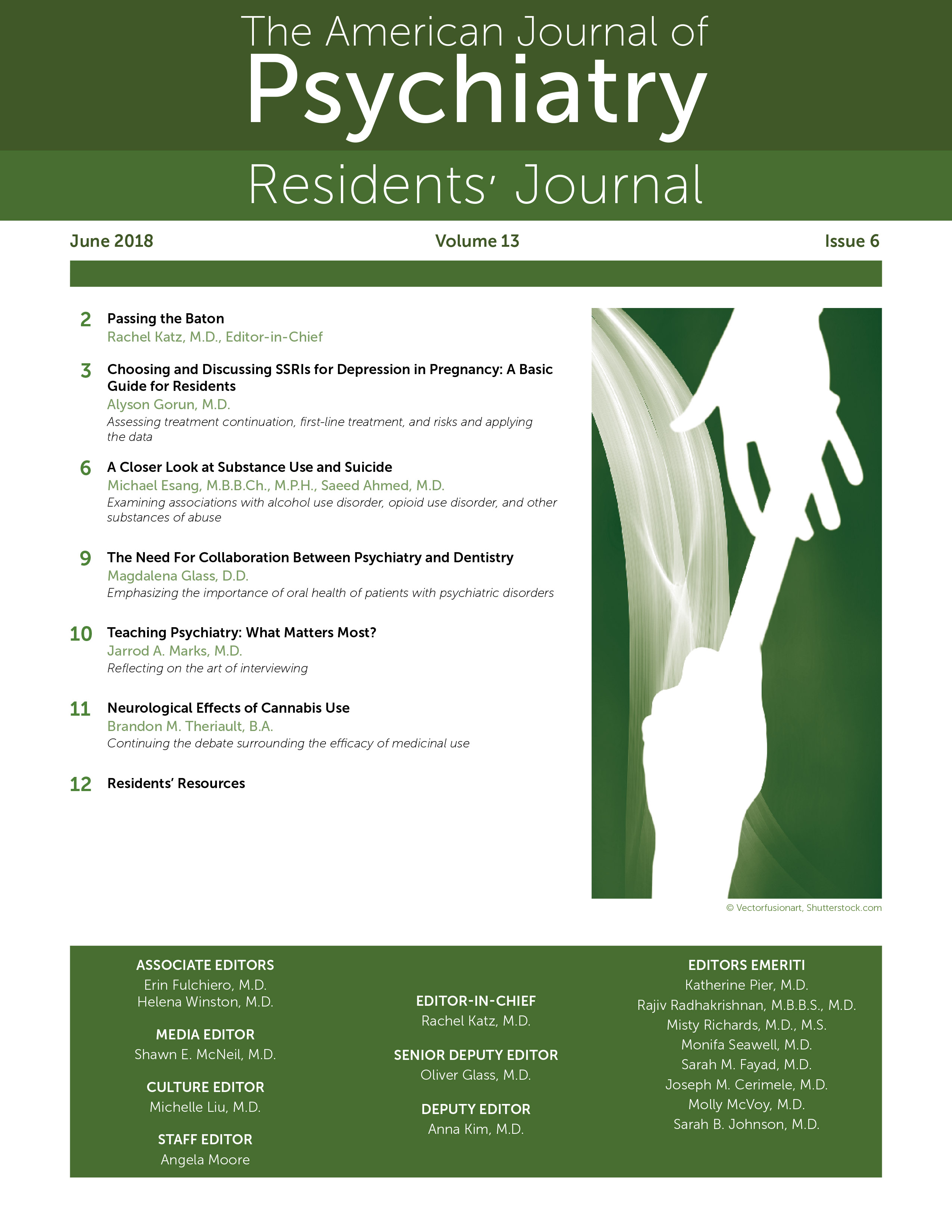Since I started my psychiatry residency almost 2 years ago, I have had the opportunity to teach dozens of bright, motivated, and inquisitive medical students during their 6-week psychiatry rotation. Learning how to teach effectively during a time-limited rotation has been a challenging but important part of my growth as a resident. Every time I work with a new group of students, I find myself asking the same question: in a field with immense depth and breadth such as psychiatry, what do I want my students to take away from this rotation?
After being in other rotations, such as medicine or surgery, students come to psychiatry primed to focus on collecting data and formulating diagnoses. Although psychiatric assessment and diagnosis requires a vast knowledge base and technical skills, in my experience, students do a reasonable job at this task with coaching. They finish the rotation competent for a medical student rotation—and well enough, I should add, to pass their shelf exam.
The challenge for students is not to collect data but rather to collect data while engaging the patient therapeutically and attempting to understand the individual person who lies beneath the data. This highly complex task of gathering hundreds of data points (and synthesizing them), while simultaneously engaging the patient, trying to understand the person beneath the data, and all the while creating a comfortable and healing experience—this is what we are tasked to do in a psychiatric interview. Students tell me that the task of interviewing a patient in a skilled and empathic manner is most challenging. The skills required for the psychiatric interview are what we must teach our students, because it is precisely those skills that will follow them throughout their practice.
Words like "empathy" are used often but rarely discussed or taught practically. We must teach our students what empathy means, why it is important, and how we demonstrate empathy toward our patients. Psychiatric residents must teach students how to support patients as well as how to therapeutically confront them in an interview. We must explore the importance of nonverbal communication in our patient interactions, along with the importance of the physical space in which an interview is conducted and how we use that space to shape our interview experience. Techniques such as using empathic statements can be introduced regularly so that throughout the course of the rotation, students will develop a rich repertoire of skills and practice them daily in a safe environment. Finding our patients psychologically, making contact with them, and understanding them in the pursuit of healing represents the heart of psychiatry. The art of interviewing is the lesson our students should take away from the psychiatry rotation because the interview is where all clinical work begins.
